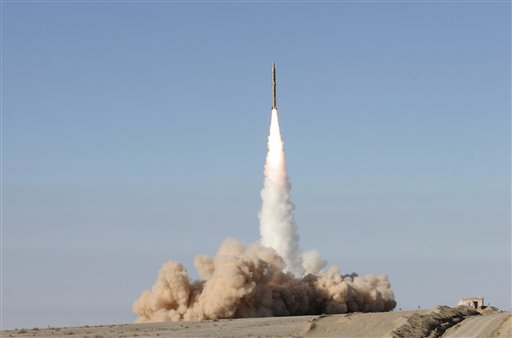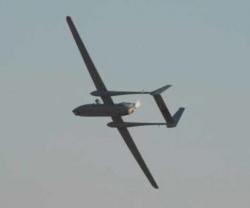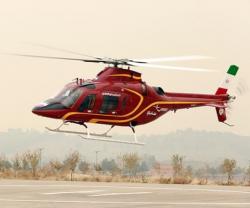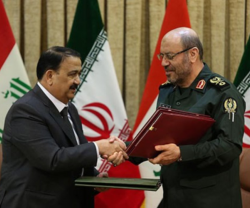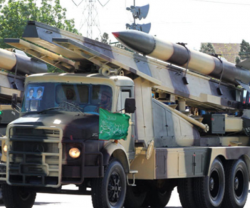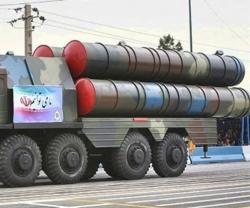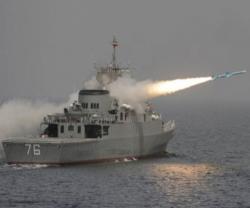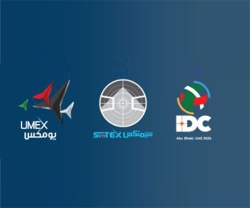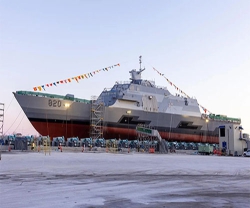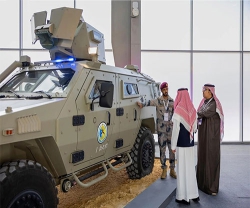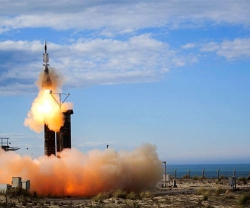IAEA: Iran building second Enrichment Plant
26.09.2009 Iran
Iran has told the UN nuclear watchdog that it has a second uranium enrichment plant under construction, diplomats said Friday, a belated disclosure sure to heighten Western fears of an Iranian bid for atom bombs.
They said Iran told the International Atomic Energy Agency of the plant's existence in a letter to IAEA director-general Mohamed ElBaradei on Monday just as six world powers and Iran prepare for rare talks on October 1 on its disputed nuclear drive.
Two diplomats close to the IAEA said Iran had told the agency the facility was a pilot, or experimental-level, enrichment site that was not yet in operation.
'There is no enrichment equipment operating and no nuclear material present (yet),' one of the diplomats told Reuters.
By equipment, he was referring to centrifuges, cylindrical machines that whir at supersonic speed to refine uranium either to low levels suitable for electricity from nuclear power plants, or to high levels for the fissile core of atomic bombs.
Iran was previously known to have one enrichment plant, a vast underground hall at Natanz where it has stockpiled low-enriched uranium in a rapidly expanding operation with almost 9,000 centrifuges installed.
The Natanz plant is under daily surveillance by IAEA inspectors. Iran concealed the site and other sensitive aspects of its enrichment program from UN non-proliferation inspectors until the Iranian exiles blew the whistle in 2002.
It was not known how long the new plant had been under construction or planned. Iran stopped providing the IAEA advance information on nuclear site designs last year in retaliation for U.N. sanctions imposed over its nuclear campaign.
A Western diplomat said US president Barack Obama was aware of the development and would make an announcement at the G-20 summit of major industrialized nations in the US city of Pittsburgh later on Friday.
The New York Times said Washington had been tracking the secret project for years and Obama decided to go public after Iran learned in recent weeks that Western intelligence agencies had penetrated the secrecy veiling the site.
Obama, British prime minister Gordon Brown and French president Nicolas Sarkozy planned to call on Iran to let the IAEA inspect the site immediately, then Times reported from Pittsburgh.
Iran is under UN sanctions for refusing to suspend enrichment and withholding access the IAEA needs to clarify intelligence indications that Iran has geared nuclear activity to develop atom bombs, not generating electricity as it says.
The Natanz facility has been using a 1970s vintage centrifuge, the P-1, whose design Iran obtained from the former nuclear smuggling network of Pakistani A.Q. Khan.
But it has been experimenting for over two years with advanced models that could enrich uranium 2-3 times faster. It was not immediately known whether the new enrichment plant would be stocked with these machines.
'This second enrichment facility could be very significant since it could prove the key to approaching potential nuclear weapons capacity for Iran,' said a European diplomat, who emphasized he had seen no details of the project yet.
'It's good that Iran is coming clean about it,' he said, alluding to lingering suspicions -- which lacked proof -- that Iran harbored further undeclared nuclear facilities, 'but this could prove disastrous for non-proliferation.'
They said Iran told the International Atomic Energy Agency of the plant's existence in a letter to IAEA director-general Mohamed ElBaradei on Monday just as six world powers and Iran prepare for rare talks on October 1 on its disputed nuclear drive.
Two diplomats close to the IAEA said Iran had told the agency the facility was a pilot, or experimental-level, enrichment site that was not yet in operation.
'There is no enrichment equipment operating and no nuclear material present (yet),' one of the diplomats told Reuters.
By equipment, he was referring to centrifuges, cylindrical machines that whir at supersonic speed to refine uranium either to low levels suitable for electricity from nuclear power plants, or to high levels for the fissile core of atomic bombs.
Iran was previously known to have one enrichment plant, a vast underground hall at Natanz where it has stockpiled low-enriched uranium in a rapidly expanding operation with almost 9,000 centrifuges installed.
The Natanz plant is under daily surveillance by IAEA inspectors. Iran concealed the site and other sensitive aspects of its enrichment program from UN non-proliferation inspectors until the Iranian exiles blew the whistle in 2002.
It was not known how long the new plant had been under construction or planned. Iran stopped providing the IAEA advance information on nuclear site designs last year in retaliation for U.N. sanctions imposed over its nuclear campaign.
A Western diplomat said US president Barack Obama was aware of the development and would make an announcement at the G-20 summit of major industrialized nations in the US city of Pittsburgh later on Friday.
The New York Times said Washington had been tracking the secret project for years and Obama decided to go public after Iran learned in recent weeks that Western intelligence agencies had penetrated the secrecy veiling the site.
Obama, British prime minister Gordon Brown and French president Nicolas Sarkozy planned to call on Iran to let the IAEA inspect the site immediately, then Times reported from Pittsburgh.
Iran is under UN sanctions for refusing to suspend enrichment and withholding access the IAEA needs to clarify intelligence indications that Iran has geared nuclear activity to develop atom bombs, not generating electricity as it says.
The Natanz facility has been using a 1970s vintage centrifuge, the P-1, whose design Iran obtained from the former nuclear smuggling network of Pakistani A.Q. Khan.
But it has been experimenting for over two years with advanced models that could enrich uranium 2-3 times faster. It was not immediately known whether the new enrichment plant would be stocked with these machines.
'This second enrichment facility could be very significant since it could prove the key to approaching potential nuclear weapons capacity for Iran,' said a European diplomat, who emphasized he had seen no details of the project yet.
'It's good that Iran is coming clean about it,' he said, alluding to lingering suspicions -- which lacked proof -- that Iran harbored further undeclared nuclear facilities, 'but this could prove disastrous for non-proliferation.'
Previous PostIran develops stealth missile interceptor
Latest news
Latest events
Doha International Maritime Defence Exhibition & Conference (DIMDEX 2026)
19 - 22 Jan 2026Doha - QatarUMEX – SimTEX
20 - 22 Jan 2026ADNEC Centre Abu Dhabi, - United Arab EmiratesWorld Defense Show (WDS) 2026
08 - 12 Feb 2026Riyadh - Saudi ArabiaSAHA EXPO International Defence & Aerospace Exhibition
05 - 09 May 2026İstanbul Expo Center - Turkey

